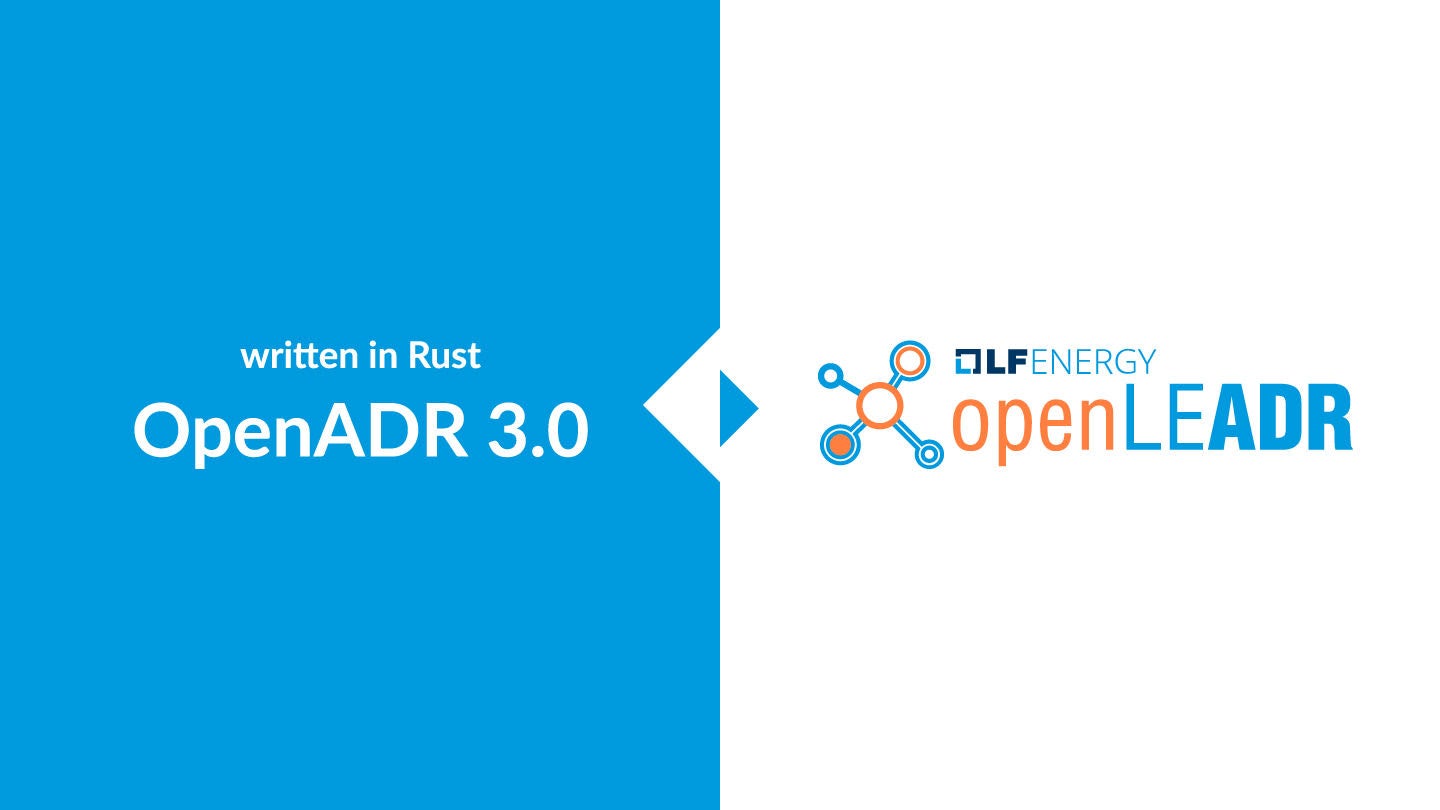OpenLEADR - Friendly and compliant implementations of OpenADR 2.0b and OpenADR 3.0
OpenLEADR is an LF Energy project providing free and open source implementations of the Open Automated Demand Response (OpenADR) protocol – an industry standard for enabling energy flexibility across grids, devices, and services. With the release of a new Rust-based implementation of OpenADR 3.0, OpenLEADR now supports both legacy and next-generation OpenADR deployments through two maintained versions:
-
OpenLEADR 2.0 – Python-based implementation of OpenADR 2.0b (IEC 62746-10-1 ED1)
-
OpenLEADR 3.0 – Rust-based implementation of OpenADR 3.0 (currently in pre-standardization)
Why OpenADR?
OpenADR is a widely adopted protocol for automated, standards-based demand response. It enables grid operators and utilities to communicate signals such as pricing, events, and capacity limits to energy-consuming devices and systems in real-time.
OpenADR is used globally to:
-
Reduce grid strain and balance load
-
Enable customer participation in energy markets
-
Integrate flexible, distributed energy resources
-
Support regulatory compliance for demand response programs
What’s New in OpenADR 3.0?
OpenADR 3.0 modernizes the protocol with significant improvements in usability, flexibility, and developer-friendliness:
-
RESTful architecture and JSON messaging make it simpler to implement and integrate
-
Maintains core OpenADR concepts (events, reports, etc.) while streamlining complexity
-
Easier adoption for VENs (Virtual End Nodes) with modular implementation options
-
Greater alignment with Common Information Model (CIM), facilitating broader interoperability
The OpenLEADR 3.0 implementation, developed in Rust, provides a highly reliable, memory-safe platform for critical infrastructure.
Why Rust?
The OpenLEADR 3.0 implementation is built in Rust, a modern language known for safety, performance, and reliability – making it ideal for the high-assurance needs of grid infrastructure.
Benefits include:
-
Memory safety and secure execution
-
Easy deployment as portable, standalone binaries
-
Growing adoption across infrastructure and embedded systems communities
What’s Included in OpenLEADR 3.0?
OpenLEADR 3.0 provides:
-
A robust VTN (Virtual Top Node) and VEN (Virtual End Node) implementation
-
Support for CRUD operations on programs, events, reports, VENs, and resources
-
Authentication and authorization mechanisms
-
High test coverage (166 of 168 tests from the OpenADR Alliance suite pass)
-
Currently excludes support for the webhook mechanism (pending spec update)
Use Cases
OpenADR 3.0, as implemented by OpenLEADR, enables diverse energy flexibility use cases:
-
Grid-Aware EV Charging: Dutch Distribution System Operators (DSOs) will use OpenADR 3.0 to send static and dynamic grid capacity profiles to Charge Point Operators (CPOs)
-
Dynamic Price Signals: Communicate time-sensitive pricing to end-user devices or systems
-
Load Management & DER Integration: Enable smarter orchestration of distributed assets in real time
Governance & Community
OpenLEADR is governed by the LF Energy community under the guidance of its Technical Steering Committee (TSC), with contributors from:
-
Tweede golf
-
ElaadNL
-
Energy IoT Open Source
Contributions, discussions, and collaboration take place on Slack, GitHub, and through public TSC meetings.
Recent OpenLEADR News
Upcoming Meetings
View the calendar of all LF Energy events
Project Special Interest Group: Edge Interoperability and Flexibility
Project Lifecycle Stage: Incubation
